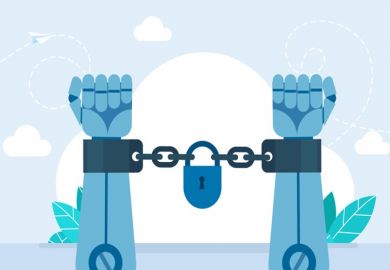Research papers are academic currency. For better or worse, they’re one of the first things scientists look at when assessing candidates for research positions or potential new collaborators.
After all, having peer-reviewed research articles implies that someone can perform high-quality research and has a track record in a particular research area. The latter is especially important for securing grant funding, which we need to hire the people to do the actual research given that most academic scientists no longer do bench work.
In the UK, our publication track record is also one way that promotions panels determine our international reputation and research quality. Hence the phrase “Publish or perish”.
A casual observer might assume that since academics are all in this same proverbial frying pan, they would avoid holding each other’s feet too severely to the fire. They might expect a culture of positivity and support to have emerged in peer review. Unfortunately, this is often not the case.
A mentor once advised me that I should aim to review approximately three times as many papers as I publish because each of my papers would have been reviewed by three people and I ought to pay that forward, so to speak. In fact, I do more than this. Maybe I need to publish more or review less, but this considerable involvement in peer review has made me painfully aware of some worrying trends among some fellow reviewers.
My frustration at this led me to vent on X. This was nothing unusual: I vent on X about a lot of things. But while most of my posts attract just a handful of likes, this one caused quite an outpouring of affirmation and agreement.
In it, I simply shared my reviewing mantra: “1) If editor asks me to review, I assume it's appropriate for the journal. No impact factor gate-keeping from me. 2) I assume I'll accept it, unless the authors convince me otherwise! 3) I don't create busy work. If I can't find anything wrong, accept as is.”
I believe the reaction highlights the frustration shared by many of us when we get reviewer comments back, particularly in relation to my first point. In my opinion, it is the editor’s job to consider if a manuscript is suitable for their journal. After all, editors of scientific journals are often paid to perform that role: they should not be delegating such decisions to reviewers.
Nor should reviewers be so anxious to take on such decisions. When I review for high-impact journals in my field, I sometimes see other reviewers comment that while the manuscript’s science is sound and well supported by the data, it is not of sufficient impact, significance or novelty to be published in the journal in question.
I assume reviewers are driven to make such remarks by a sense that they are in competition with the manuscript authors to publish in such journals. Perhaps they themselves, as authors, have been the victims of such remarks and don’t see why others should get off more lightly. But I take a different approach.
In reality, it makes zero difference to reviewers’ careers if someone else gets a paper published in a high-impact journal. But it could make all the difference to an early-career researcher in particular. Although many funders explicitly ask grant reviewers not to take impact factors into account, it’s hard to beat back the bias towards a study supported by results recently published in Cell, Nature or Science.
Regarding my second point, I think it’s important to approach a review with a positive attitude. “Accept” is my default position, subject to certain checks. With data manipulation and fabrication on the rise, the first thing I look at is always the raw data. In some cases, it’s immediately obvious that the authors have fallen short of adequately supporting their conclusions, requiring major revisions to rectify.
In most cases, though, the data is sound and supports the conclusions. And while certain things could be better clarified (for me, this is almost always the figures), that only requires minor revisions. Which brings me on to my point three: creating busy work.
Every writer has their own style and, as reviewers, we need to accept this. Some reviews I’ve seen are so pernickety that they are really just creating work for the authors without even improving how the manuscript reads. I now avoid doing this. If I can’t find any errors or problems with the manuscript, I just summarise what I like about it for the editor and recommend publishing as is.
Ultimately, the way I believe we should approach peer review is the way we should approach everything in life: by treating others the way you’d want to be treated. Peer review is a voluntary, unpaid activity, so chill out and don’t let the power go to your head. Provided the science is sound, hit that accept button and brighten somebody’s day.
Stephen Cochrane is reader in organic chemistry and chemical biology at Queen’s University Belfast.
Register to continue
Why register?
- Registration is free and only takes a moment
- Once registered, you can read 3 articles a month
- Sign up for our newsletter
Subscribe
Or subscribe for unlimited access to:
- Unlimited access to news, views, insights & reviews
- Digital editions
- Digital access to THE’s university and college rankings analysis
Already registered or a current subscriber?








